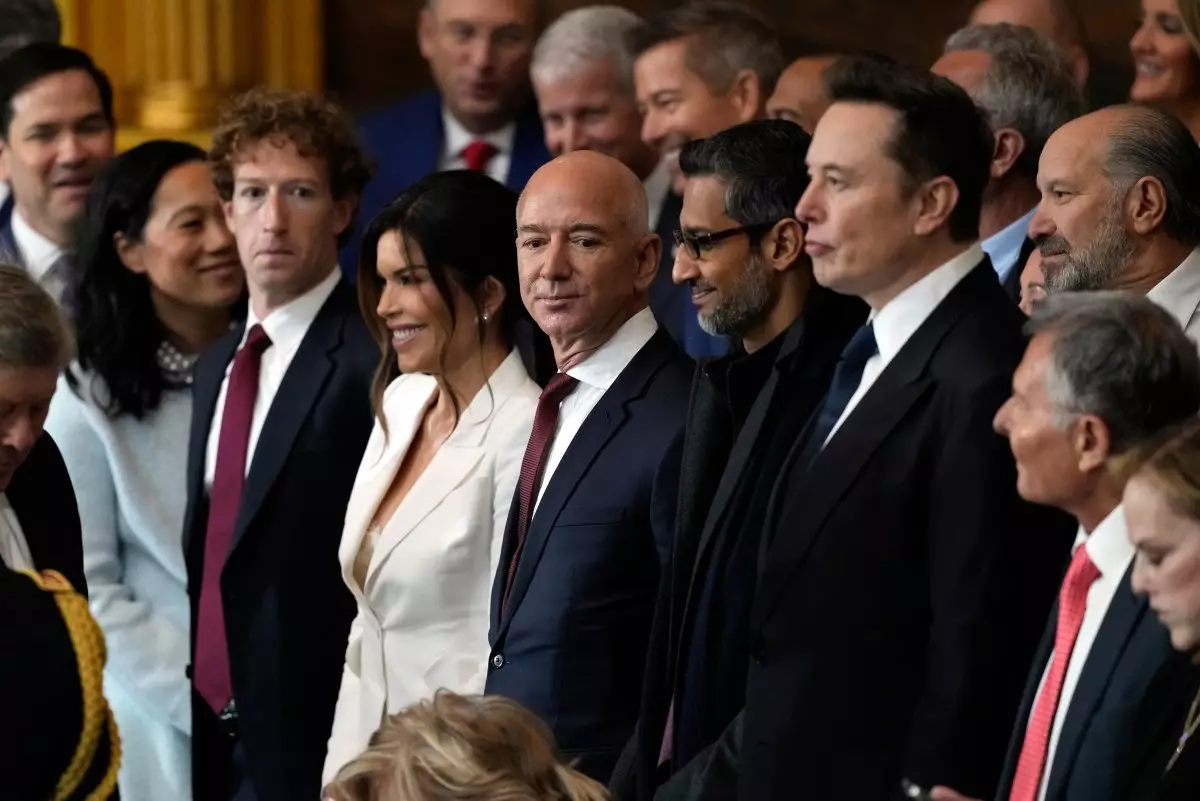In a dramatic move that echoes the increasing tension between conservative lawmakers and the tech sector, House Judiciary Chair Jim Jordan has recently initiated a sweeping inquiry into potential collusion between the Biden administration and major technology companies regarding the management of artificial intelligence (AI) products. With letters dispatched to 16 prominent firms, including Google and OpenAI, Jordan is probing for evidence that suggests coercive measures to suppress speech on AI platforms. This initiative marks a new chapter in the culture war that pits Silicon Valley against conservative ideologies, stirring the pot on issues of censorship and free speech in an age where AI is becoming increasingly integral to our daily lives.
Jordan’s investigation isn’t merely a political stunt but comes on the heels of prior claims by the Trump administration that Big Tech was conspiring to silence conservative voices online. As the 2024 presidential election looms, this inquiry signals a deeper struggle for control over the narrative surrounding technology and its implications for free expression. The stakes are high; the outcomes of such inquiries could shape public perception of AI’s role in democracy and transparency.
Unpacking the Allegations Against Big Tech
At the heart of Jordan’s claims is the allegation that the Biden-Harris administration actively sought to steer AI companies toward policies that would deliberately suppress certain viewpoints. In his letters to executives like Sundar Pichai of Google and Sam Altman of OpenAI, he references findings from a report that purportedly highlights these efforts, casting a long shadow over the integrity of these institutions. But is this merely an attempt to weaponize AI against perceived political adversaries?
While Jordan is meticulous in his pursuit of communication records, some tech companies have begun to anticipate such scrutiny by adapting their policies. OpenAI, for example, has recently embarked on a mission to reshape the representation of perspectives in their AI training. The company claims this wasn’t a concession to political pressures, but rather a commitment to its foundational values. Nevertheless, the timing has raised eyebrows, with critics speculating whether it truly reflects a genuine overhaul of philosophy or an attempt to fend off allegations of bias.
The Responses and Reactions
Interestingly, as Jordan lays this groundwork for inquiry, responses from the tech firms have been cautiously muted. Some, like Nvidia and Microsoft, have outright declined to comment, while others seem to be treading lightly around the political hornet’s nest that is AI censorship. Notably absent from Jordan’s list of targeted companies is Elon Musk’s xAI, a point that may reflect Musk’s close association with Trump and the potential political ramifications tied to such affiliations.
The uncomfortable reality for these tech firms is that any perceived shift in policy could easily be portrayed by conservative pundits as a capitulation to public pressure. This fear has already manifested in mixed reactions to changes in AI protocols, with companies like Anthropic taking a bolder stance by modifying how their models interact with controversial topics. These changes indicate a growing awareness of the delicate balance between technological progress and political accountability.
The Future of AI in a Polarized Climate
As the inquiry unfolds, the impact on AI technology and its governance remains uncertain. The upcoming election cycle is likely to exacerbate these tensions, further complicating an already convoluted landscape for tech companies striving to navigate political winds. The fear of being labeled as partisan players could lead to overly cautious approaches in AI development, inhibiting innovation and possibly stifling varied perspectives.
Moreover, the implications of any discoveries made during Jordan’s investigation could extend beyond AI firms, affecting broader public trust in technology as a whole. In a time when advancements shouldn’t be hampered by political agendas, the concern is that such investigations might cause tech companies to retreat into silence, becoming less transparent about the workings of their algorithms and decision-making processes.
In an age where the boundaries between free speech and censorship are increasingly blurry, the outcome of this inquiry could set powerful precedents for the future of AI and its role in society. While technology holds the potential to amplify diverse voices, the specter of political interference looms large, prompting both an urgent dialogue and a careful examination of how we approach governance in the age of artificial intelligence.

